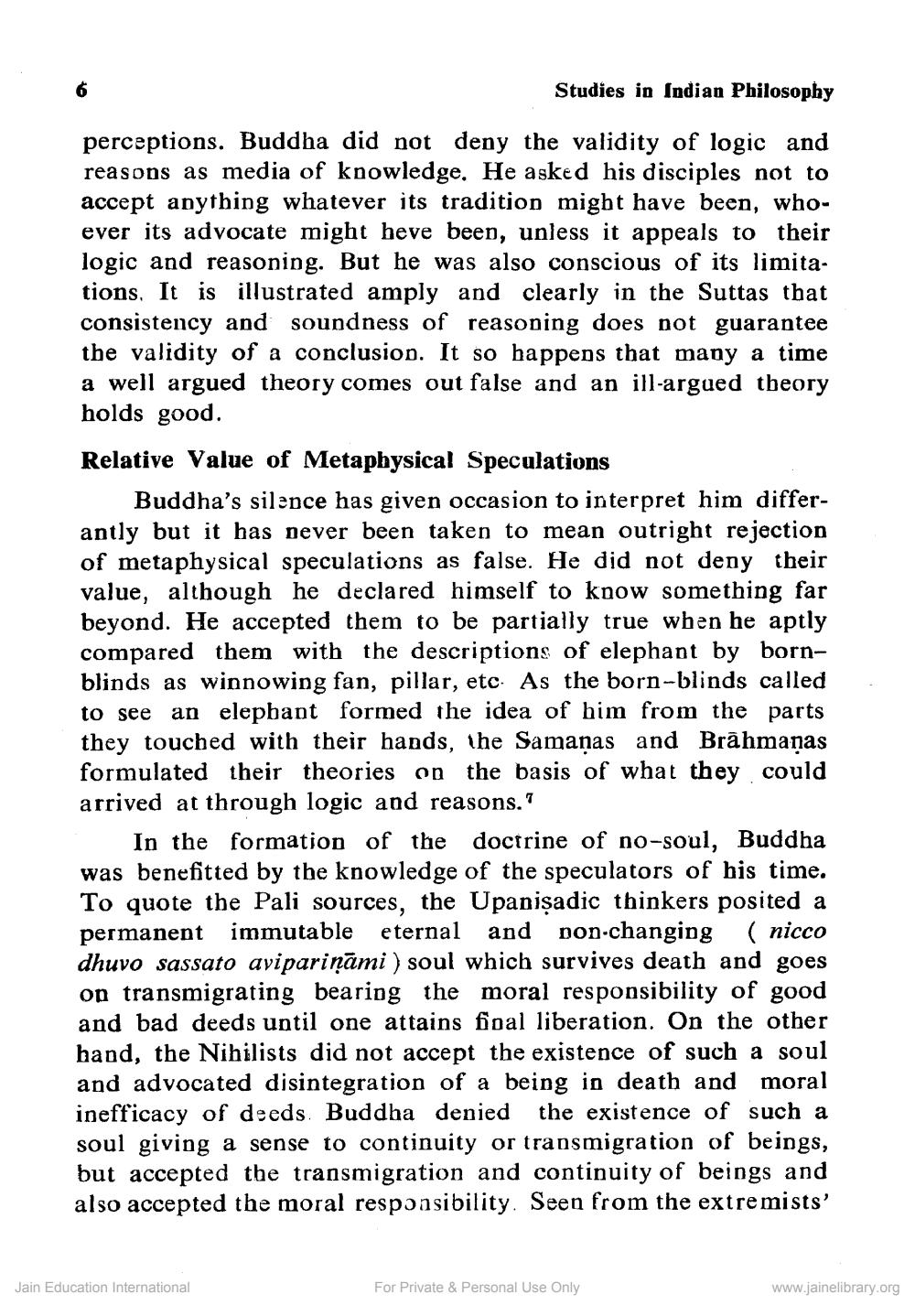________________
Studies in Indian Philosophy
perceptions. Buddha did not deny the validity of logic and reasons as media of knowledge. He asked his disciples not to accept anything whatever its tradition might have been, whoever its advocate might heve been, unless it appeals to their logic and reasoning. But he was also conscious of its limitations. It is illustrated amply and clearly in the Suttas that consistency and soundness of reasoning does not guarantee the validity of a conclusion. It so happens that many a time a well argued theory comes out false and an ill-argued theory holds good. Relative Value of Metaphysical Speculations
Buddha's silence has given occasion to interpret him differantly but it has never been taken to mean outright rejection of metaphysical speculations as false. He did not deny their value, although he declared himself to know something far beyond. He accepted them to be partially true when he aptly compared them with the descriptions of elephant by bornblinds as winnowing fan, pillar, etc. As the born-blinds called to see an elephant formed the idea of him from the parts they touched with their hands, the Samanas and Brāhmanas formulated their theories on the basis of what they could arrived at through logic and reasons."
In the formation of the doctrine of no-soul, Buddha was benefitted by the knowledge of the speculators of his time. To quote the Pali sources, the Upanişadic thinkers posited a permanent immutable eternal and non-changing (nicco dhuvo sassato avipariņāmi ) soul which survives death and goes on transmigrating bearing the moral responsibility of good and bad deeds until one attains final liberation. On the other hand, the Nihilists did not accept the existence of such a soul and advocated disintegration of a being in death and moral inefficacy of deeds. Buddha denied the existence of such a soul giving a sense to continuity or transmigration of beings, but accepted the transmigration and continuity of beings and also accepted the moral responsibility. Seen from the extremists'
Jain Education International
For Private & Personal Use Only
www.jainelibrary.org




